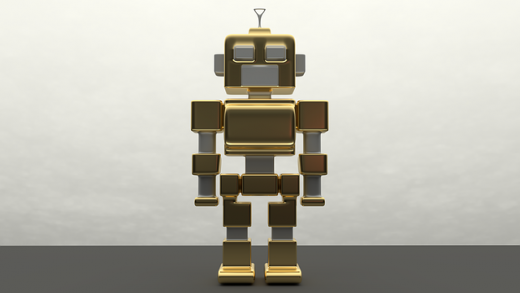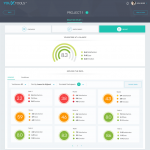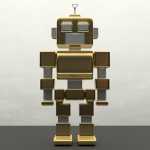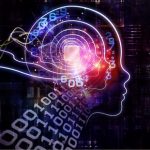How Our Own Humanity Can Save Our Jobs From the Rise of AI
— September 14, 2017

erik_stein / Pixabay
“We’re all sorry for the other guy when he loses his job to a machine. When it comes to your job, that’s different, and it always will be different.”
In the 1968 Star Trek episode, “The Ultimate Computer,” these were Dr. McCoy’s words of wisdom to a concerned Captain Kirk, who was fretting over the possibility he might be replaced by the advanced M5 supercomputer.
Nearly 50 years later, concerns over artificial intelligence-driven job losses have moved from science fiction to everyday reality, with a growing chorus of voices sounding the alarm over potential labor disruptions wrought by the rise of robots. Some experts now are warning that machines and AI will be outperforming humans at nearly every task in 45 years, leading to massive unemployment.
And it just isn’t blue-collar workers whose vocations may be at risk from AI. Some warn that technologies could supplant workers in every sector, even those whose jobs would seem to be immune to replacement by AI. Imagine surgeons, executives, novelists, brokers and even data scientists all in the unemployment line, courtesy of AI.
True, the proliferation of AI will lead to the elimination of many jobs. However, this won’t render human labor obsolete. Instead, this phenomenon promises to elevate human capital, making people more efficient and allowing them to focus on the value-added aspects of their occupations. Moreover, people should have faith that human ingenuity will create new jobs, industries and ways to make a living, just as it has been since the dawn of the Industrial Revolution.
The Reality Of Artificial Intelligence
Much of the current fear surrounds the development of artificial general intelligence (AGI). Like the M5 in Star Trek or HAL 9000 in 2001: A Space Odyssey, AGI is human-level AI, capable of matching any intellectual feat performed by homo sapiens.
Many leading thinkers, including Stephen Hawking, Bill Gates and Elon Musk, fear the advent of AGI, claiming that the technology could dramatically outstrip human intelligence and then discard mankind like last week’s leftovers.
The accomplishment of true AGI remains many years into the future. Acclaimed futurist Ray Kurzweil is among the most optimistic forecasters, with his prediction that AGI in its highest form (the singularity) is 12 years away. Surveys of AI experts offer a more conservative consensus, estimating that AGI will arrive between 2035 and 2050, if not further into the future.
In the meantime, another form of AI is already here making its presence felt in the global economy: artificial narrow intelligence(ANI). While AGI does everything, an ANI machine performs only one task, typically much more efficiently than its human counterpart. Anyone reading this article has almost certainly used at least one ANI service, such as Google Translate, Amazon Alexa or the Windows Hello facial-recognition system.
ANI is a huge part of the AI market, which generated $ 1.4 billion in global software revenue in 2016, according to the market research firm Tractica.
Economic Intelligence
More importantly, ANI is stimulating broad productivity gains. On the supply side, businesses are using AI technologies to automate processes and boost employee effectiveness with assisted and augmented intelligence, according to PwC. On the demand front, AI is promoting sales by enabling the development of personalized products that are enhanced with new levels of intelligence.
Together, these factors will allow AI to offer up $ 15.7 trillion to the global economy in 2030, PwC forecasts. While AI will make some posts redundant, it also will generate demand for new positions. The PwC report claims, “In addition to new types of workers who will focus on thinking creatively about how AI can be developed and applied, a new set of personnel will be required to build, maintain, operate and regulate these emerging technologies.”
Work Smarter
What PwC is describing is an elevation of the quality of work. In the AI era, workers will waste less time performing menial tasks, freeing them to concentrate on more productive aspects of their jobs. This trend is already apparent in fields like the legal industry, where law professionals are buried beneath an ever-growing avalanche of paperwork and other forms of documentation.
For example, in a recent TCPA violation case, AI engines analyzed 33,000 hours of audio recordings and consolidated applicable data to 140 hours, saving the defendant millions and reducing review hours by 99%.
JP Morgan is also finding benefits in utilizing AI to expedite productivity. According to a Futurism article from March, the company’s loan officers spend a total of 360,000 hours each year on tasks like interpreting commercial loan agreements. With the help of AI, JP Morgan has managed to cut this time to mere seconds.
In the banking industry alone, companies fork over $ 270 billion a year in compliance and regulation costs. Each case can take several hours to review, monopolizing employee productivity. Not only can AI assist in things like weeding out the false-positive cases, but its ability to streamline the review process would allow employees to spend time on critical business initiatives.
Ready or not, the age of AI upon us. Consumers should prepare to make AI a part their daily lives, not only through the use of virtual assistants like Siri and internet searches but also as an essential element of their work routine.
Those who fear that AI will take their jobs shouldn’t rail against this inevitable technology innovation. Instead, they should hone their skill sets with talents only humans possess, such as creativity, emotional intelligence and unstructured problem-solving. Better yet, become a fearless early adopter: integrate AI into your job and demonstrate the efficiency gains to your co-workers.
Business & Finance Articles on Business 2 Community
(45)










